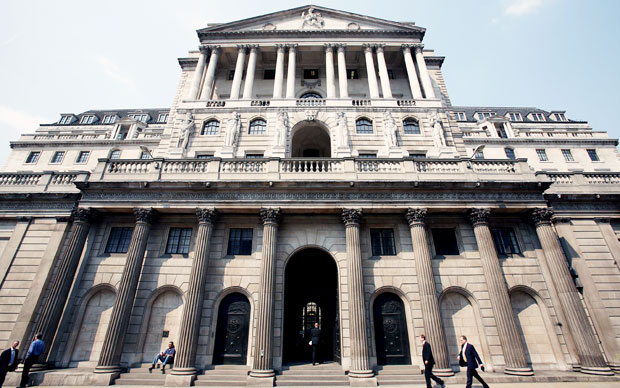When the Bank of England is not indulging employees with the kind of taxpayer-funded hospitality that would make a bailed-out banker blush, its lofty and unelected officials might like to consider how they could help us ordinary mortals in the new year.
It has emerged that the Old Lady of Threadneedle Street spent nearly £100,000 of our money on its annual summer party, just weeks after the Brexit vote tossed the country into economic and political turmoil.
Following a Freedom of Information request, the central bank admitted that it lavished more than £94,500 (excluding VAT) on food, entertainment and the venue for the Governors’ Day event, with nearly another £4,500 on ‘other’ costs.
It hosted the bash at its very own sports club in Roehampton, south west London, which sounds exactly like the sort of establishment that exemplifies the depressingly deep divisions in modern Britain.
With its sports hall for indoor tennis, badminton and cricket as well as a relaxation suite offering a steam room, sauna and jacuzzi, a 20m indoor swimming pool which opens onto a sun terrace, lawn and ‘some of the finest outdoor facilities in the country’, this is a world away from the disrepair and disregard of what passes for recreational facilities in the austerity-hit parts of the country that voted most resoundingly against the status quo in the EU referendum.
As if to underline this gaping chasm, anyone aged over 10 must carry an identity card at all times, and while families may add their nanny or au pair to the family membership, these interlopers must not use the facilities independently.
The Bank of England defended the expense of Governors’ Day, saying it is ‘a long-held tradition that is open to all employees – including members of the Monetary Policy Committee – including their families, with the aim of recognising their hard work and dedication’.
It added: ‘The annual event is an important one for all Bank employees and the Bank strongly believes that this carefully budgeted event is worthwhile.’
I doubt that defence would wash among those hardest hit by the Bank of England’s policies of ultra-low interest rates and an unprecedented money-printing spree that has left pension fund deficits at a record high and largely benefited those lucky few holding the right assets.
Indeed, the Treasury Select Committee announced last week that it would review the ‘unintended consequences’ of the Bank’s policies.
As 2016 slips into 2017, the British economy finds itself in a risky position. Inflation is coming on fast and business investment is weak, plus the real prospect of Brexit in little over two years’ time is casting a big shadow of uncertainty over the future.
The Bank does not have many tools left in its box in the event of another downturn. When it does act, it ought to pay more mind to the hard-pressed Just About Managing families who must pick up the bill, not only for its largesse, but also for its speculative policymaking.
The notion of ‘QE for the people’ does not seem quite so ridiculous as it did when floated by the Labour Party.
Making payments directly to JAMs when the economy needs a post-Brexit boost might have the feel of natural justice to it. The millions of people shut out by the Bank of England’s partying and policies would have something to smile about at last.
Bernard Ginns is director of www.branksomepartners.com and was Business Editor of The Yorkshire Post from 2008-16






Comments